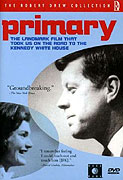Inhalte(1)
Robert Drew sollte einen Dokumentarfilm fürs Fernsehen über den Vor-Wahlkampf von Hubert Humphrey und JFK in Wisconsin drehen. Bisher war bei so etwas die gängige Praxis, eine Art bebilderte Vorlesung, mit gelegentlicher Musikuntermalung, aufzuzeichnen. Drew entwickelte die neue Konzeption: die Dokumentation eines Dramas mit ungewissem Ausgang, der sich erst vor dem Auge der Kamera entfalten sollte. (Verleiher-Text)
(mehr)Kritiken (1)
The significance of this work cannot be overestimated - it is the symbolic beginning of the so-called direct cinema approach enabled by advancements in film technology (light cameras, improved options for synchronizing and recording sound on location), and it still influences the concept of documentary filmmaking today. In conjunction with cinema-vérité (which, however, direct cinema should not be completely mistaken for, as anyone who has seen representatives from both movements knows), it brought about a revolutionary change in capturing reality that did not end in the 1960s but must still be fought for again and again. Therefore, even Primary is not just a piece of history today. The utopian and inspiring core of direct cinema lies in the following: the attempt to dissolve the camera and the documentarian in the observed object through pure observation; capturing a pure and unrestricted presentation of individuals/society externally; capturing unfolding reality through transparent observation, but doing so gently, like catching a butterfly, without any external interventions that disrupt the smooth flow of unreflected reality. The author of the documentary only appears on the scene in the editing process - the camera and editing as the creators of the film. Handshakes, fake smiles, endless car rides, rows of people waiting for rehearsed jokes - these are the truths of politics that only direct cinema was able to discover.
()
